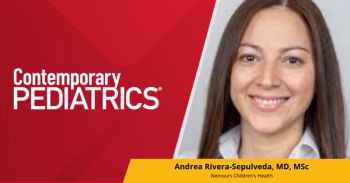
Girls with ADHD at increased risk for teen pregnancy
Girls with ADHD are six times more likely to be teen moms, according a new report.
A diagnosis of attention-deficit/hyperactivity disorder (ADHD) already comes with a host of added risk factors, and a new study adds another-adolescent pregnancy.
Charlotte Borg Skoglund, MD, PhD, a clinical neuroscientist with the Karolinska Institute in Stockholm, Sweden, and lead author of the study, says the report highlights the increased risk of pregnancy faced by girls and women with ADHD, in spite of the widespread availability of contraception in Sweden.
“In contrast to those without a diagnosis this group doesn’t seem to benefit from guidance on contraception and societal interventions targeting the risk for early and unplanned pregnancies that has been very successful in other groups of teenagers,” Skoglund says. “Teenaged pregnancies are rare, but associated with several long- and short-term adverse consequences for both women and children.”
Researchers studied more than 384,000 women and girls aged 12 to 50 years in Sweden who gave birth between 2007 and 2014. Roughly 6400 of them were diagnosed with ADHD and were 6.2 times more likely than their peers to experience a teenaged pregnancy, according to the report.
Teenagers with ADHD are at a higher risk of externalizing and risk-taking behaviors, the study notes, and are more likely than their peers to engage in risky sexual behaviors.
“Attention-deficit/hyperactivity disorder in girls and women is still in a large part of the world a hidden problem. Underlying difficulties associated with ADHD such as executive problems, impulsivity, and risk-taking behaviors are probably part of the explanation of why girls and young women with ADHD are at such high risk for becoming mothers at such a young age,” Skoglund says.
This puts these teenagers at a higher risk of contracting sexually transmitted diseases, as well as experiencing unplanned pregnancies, according to researchers. The study also notes that in addition to having an unplanned pregnancy, girls with ADHD were more likely to have adverse obstetric and perinatal outcomes including being underweight, smoking during pregnancy, and substance use during pregnancy. These teenagers were also more likely to have other psychiatric diagnoses.
More research is needed to determine why exactly girls with ADHD have higher rates of teenaged pregnancy, but the study suggests several possible contributing factors.
“In the article we highlight some potential but previously unexplored hypotheses behind this increased risk, including that women with ADHD may receive inadequate contraceptive counseling in regards to their underlying difficulties,” she says. “They somehow fail to access or inadequately respond or act upon such counseling. It’s also possible that women with ADHD experience more adverse effects from hormonal contraceptives.”
There may also be a lack of awareness among providers to the increased risk of teenaged pregnancy among girls with ADHD, researchers suggest, and more intensive efforts to educate these patients may be useful.
“Girls and women with ADHD are still under-recognized and under-diagnosed. This is an important but problematic issue because almost all diagnostic assessments and treatments are developed based on research among boys and men,” she adds. “Parents to girls with ADHD need to make sure that their daughters have adequate support and treatment for their ADHD. In addition they should make sure that the treating physician addresses and secures that their daughters have sufficient contraception and intervene to prevent early debut and use of alcohol and illicit drugs.”
Skoglund says she hopes the study will help to spur discussion on potential mechanisms and explanations, and will lead to increased awareness among clinicians.
“Clearly, the standard of care in girls and women with ADHD should include active efforts to prevent teenaged pregnancies in order to reduce long-term adverse consequences for both women and their children,” Skoglund says. “One way to provide adequate care and suitable contraception for adolescents with neurodevelopmental disorders could be trans-disciplinary collaboration between psychiatric clinics for adolescent and adolescent clinics and to perform further studies on tolerability of hormonal contraception in women with ADHD.”
Newsletter
Access practical, evidence-based guidance to support better care for our youngest patients. Join our email list for the latest clinical updates.








